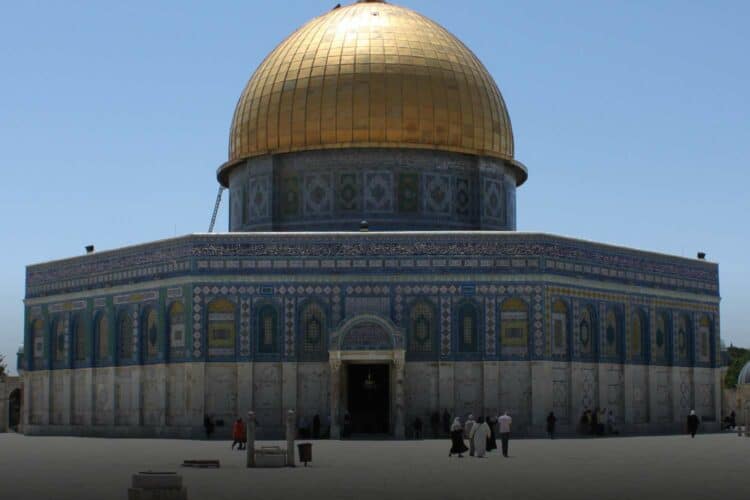South African nationals were recently detained by Israeli authorities in Tel Aviv, facing deportation and being barred from visiting the Al-Aqsa Mosque, Islam’s third holiest site.
Israeli officials blasted for detaining South Africans in Tel-Aviv
This week, South African citizens planning a pilgrimage to the Al-Aqsa Mosque during Ramadan found themselves detained near Tel Aviv’s airport.
The individuals were subjected to hours of detention before being forced to leave the country.
The action taken by Israeli officials has drawn criticism, particularly because the detainees had been granted visas for entry.
Their plans to visit a key religious site during a significant period were abruptly halted, leading to a complex situation that touches on ongoing diplomatic tensions between South Africa and Israel.
One of the detained South Africans shares their experience
A South African national, among those deported, recounted the ordeal of being detained for more than 48 hours without sleep.
The detainee described an intense interrogation process by Israeli security, which included questions about their Islamic beliefs, prayer practices, and personal life.
“They went through my phone, my whatsapp messages, all my social media but couldn’t find anything. They then made me wait for hours again before sending me to another room with a big bald headed Israeli man with a stern look on his face (clearly there to intimidate me). They asked for my fingerprints telling me it was routine procedure when I refused. After much pressure from both the Israeli men I agreed and provided my fingerprints,” the detainee explained.
Despite providing fingerprints under pressure and going through exhaustive checks that revealed no incriminating evidence, they were denied entry on grounds of ‘public security for Israel.’
“When I asked them how I’m a security threat to the public they said ‘we don’t deny people entry to the country for no reason, you must have done something wrong’,” the South African traveller recalled.
This decision came even after a visa had been granted. The detainee’s attempts to understand the security threat they allegedly posed were met with vague responses.
“When I said no I don’t know tell me, they said ‘you must know’. SubhanAllah not answering the question. Then they brought me a document in Hebrew and wanted me to sign it. I refused because I didn’t know what I was signing. One of them became aggressive and threatening, insisting I sign it, trying to make me hold the pen etc. They eventually realised that there was no way I was going to sign it so gave up. I was then sent to a small room to spend the whole night. It was a small, cold and dirty room where I was sat on a plastic chair. In the corner of the room there was a dirty water tank and few pieces of bread.
“I wasn’t even allowed to visit the toilet without being escorted by security staff nor was I allowed to leave the room to pray. I put my coat down on the floor and prayed.. After spending the whole night not knowing what’s going on they said they were going to send me on a flight to London the following day, knowing very well that I live in Manchester. I tried to explain that it was too long to wait there but they didn’t listen and left me there again for hours in this room.
“Later, I was able to speak to another security lady (who seemed slightly more reasonable) and explained I was willing to book and pay for my own flight to get out of there sooner. She spoke to someone and they eventually agreed. I still had to wait until the evening and was escorted on the plane by security staff after being checked head to toe, my bags checked etc in front of everyone and publicly humiliated, made to feel like a criminal SubhanAllah. My only consolation was seeing the look on their face when they escorted me to my seat on the plane and realised that I had booked a business class seat!”
Why are large crowds flocking to the Al-Aqsa Mosque?
The Al-Aqsa Mosque holds profound significance in Islam, believed to be the site of the Prophet Muhammad’s Night Journey from Mecca to Jerusalem and then to Heaven.
Located in East Jerusalem, it is considered the third holiest site in Islam, attracting large crowds, especially during Ramadan.
Recently, Israeli police dispersed Palestinian worshippers at the mosque using tear gas from drones, an incident that occurred as thousands gathered for dawn prayers on the last Friday of Ramadan.
This event, coupled with the detentions, occurs amid brewing tensions in the Israeli-Hamas war, which the United Nations (UN) and, more reluctantly, US President Joe Biden, have condemned.






